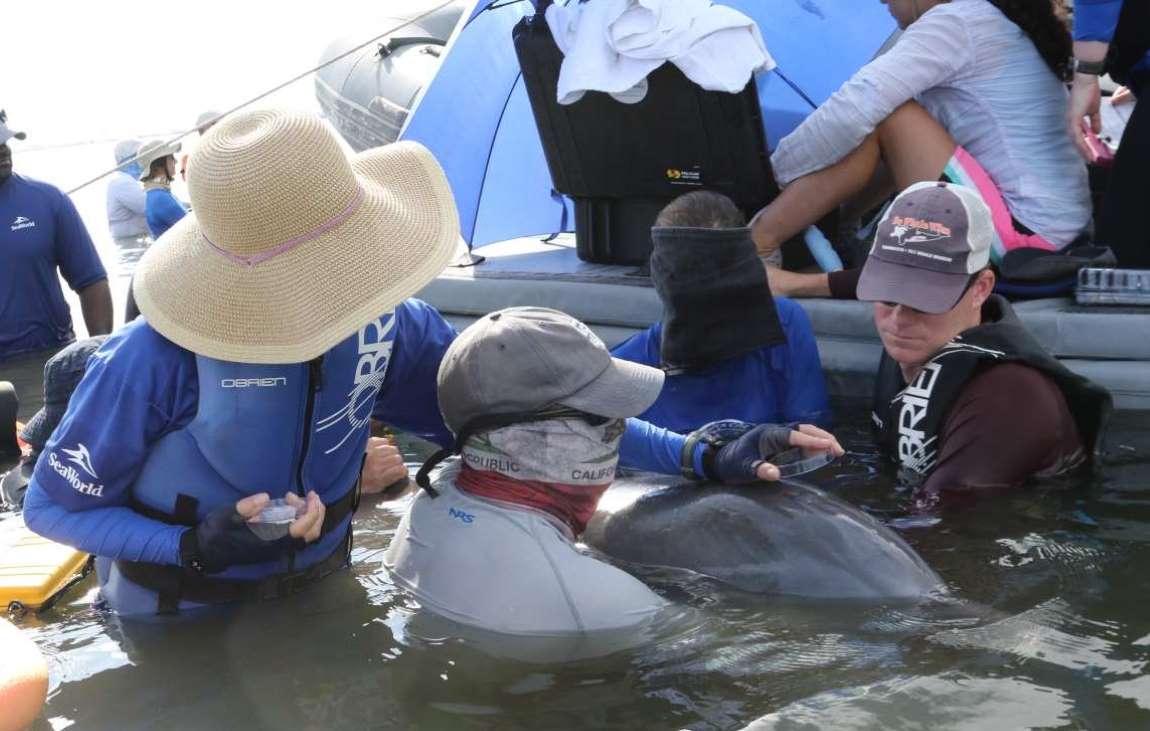U.S. researchers have found microplastic particles in the breath of wild bottlenose dolphins, suggesting that inhalation could be a significant route of exposure to these potentially harmful contaminants.
The study, led by Miranda Dziobak of the College of Charleston, South Carolina, was published in the journal PLOS ONE.
The team collected exhaled air samples from 11 dolphins during health assessments in two locations: Sarasota Bay, Florida, and Barataria Bay, Louisiana. By holding a collection surface over the dolphins’ blowholes as they exhaled, the researchers captured microplastic particles directly from their breath.
Upon analysis, they found that all 11 dolphins had inhaled microplastics, which included fibers and fragments of various polymers such as polyethylene terephthalate (PET), polyester, polyamide, polybutylene terephthalate, and poly(methyl methacrylate) (PMMA).
Dziobak and her colleagues also measured microplastic levels in the surrounding air near the dolphins to ensure that the particles were not merely airborne but had indeed been exhaled by the dolphins. Their findings confirmed that these plastics were present in the dolphins’ respiratory systems.
Exposure to microplastics has been documented in numerous species, including humans and rodents, where it has been associated with adverse health effects, such as inflammation and oxidative stress. In humans, ingestion of contaminated food is a primary exposure route, and inhalation of airborne particles has been linked to respiratory issues. However, little research has focused on inhalation as a possible route of exposure for wildlife.
This study suggests that dolphins, like humans, may inhale microplastics, potentially posing a threat to their health.
The discovery raises concerns about the impacts on dolphins’ respiratory systems. Dolphins, with their large lung capacity and deep-breathing patterns, may be especially vulnerable to inhaled contaminants.
“We know that microplastics are floating around in the air, so we suspected that we would find microplastics in breath samples,” said the authors. “We are concerned by what we are seeing because dolphins have a large lung capacity and take really deep breaths, so we are worried about what these plastics could be doing to their lungs.”
This study is a preliminary examination of microplastic inhalation by marine mammals, and the authors emphasize the need for further research. Specifically, more studies are required to quantify the degree of microplastic exposure dolphins may face and to understand any long-term health effects, such as lung damage.
The findings highlight the pervasive presence of microplastics not only in oceans and food chains but also in the air, indicating an urgent need to address this environmental threat.
Journal Reference:
Dziobak MK, Fahlman A, Wells RS, Takeshita R, Smith C, Gray A, et al. ‘First evidence of microplastic inhalation among free-ranging small cetaceans’, PLoS ONE 19 (10): e0309377 (2024). DOI: 10.1371/journal.pone.0309377
Article Source:
Press Release/Material by PLOS
Featured image: Exhaled breath is collected from a wild bottlenose dolphin during a health assessment conducted by the National Marine Mammal Foundation and partners in Barataria Bay, LA. (Bottlenose dolphin health assessments were conducted under MMPA/ESA Permit No. 18786-03 in 2018 and MMPA/ESA Permit No. 24359 in 2023) Credit: Todd Speakman | National Marine Mammal Foundation | CC-BY 4.0




